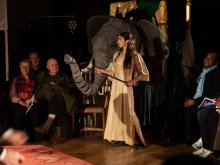
A School Theatre Retrospective (2014-2024)
Over the last ten years, Naomi Lord has consistently redefined what theatre can be while working on productions at Bolton School. With a steadfast commitment to making theatre that is both challenging and relevant to the young people creating it, each production has been an act of invention: crafted from the ground up, often in unexpected spaces, and always pushing at the boundaries of expectation.
Beyond simply providing a platform for student actors, these productions have embraced the full spectrum of theatrical careers. Pupils have worked alongside industry and university professionals to produce original music, design lighting and sound, manage the box office and front of house, build sets, create marketing campaigns, and even act as assistant directors. This has not only widened access to theatre-making but also illuminated the varied pathways into the arts and cultural industries.
Each show has sought to challenge conventional notions of what school theatre can be, engaging with contemporary themes, drawing inspiration from a broad range of regional and national theatre practices, and making bold artistic choices that have transformed the spaces of Bolton School itself: the Arts Centre, the Boys’ Division Great Hall, the McKellen Studio Theatre, and even the entire school building for promenade performances.
Below is Miss Lord’s retrospective of this remarkable decade of theatre, beginning with the groundbreaking 2014 production that set the tone for all that followed.
2014: Romeo and Juliet – The Musical
Before the West End’s & Juliet, there was this: a bold, genre-blurring fusion of Shakespeare and contemporary pop music.
The challenge at the outset of my tenure was clear: how could school theatre balance the popular with the challenging? The answer came in the form of Romeo and Juliet – The Musical, a daring reimagining of Shakespeare’s tragedy, staged in traverse to evoke the high-drama, high-stakes energy of New York Vogue Balls.
This was no standard Shakespeare adaptation. Instead, it was a collision of Elizabethan language and contemporary music with musical direction from Liam Maloney (University of York) and dance direction from Elisa Fielding, creating a world where rival Capulet and Montague camps battled not just with swords but with style and attitude, parading their teenage angst along a runway of love, rebellion, and consequence. The production was infused with a soundscape that prefigured the success of & Juliet, inventively integrating popular tracks with Shakespearean text.
The music, created with professional guidance and performed by pupils, was at the heart of the work. The soundtrack ranged from high-energy dance numbers to poignant ballads, capturing the emotional peaks and troughs of the narrative in a way that spoke directly to a young audience.
The transformation of the Arts Centre into an immersive, catwalk-style theatre space challenged traditional staging conventions, placing the audience in the thick of the antics of the warring families. The result? A production that felt urgent, fresh, and profoundly relevant.
Listen to the 'Romeo and Juliet' soundtrack
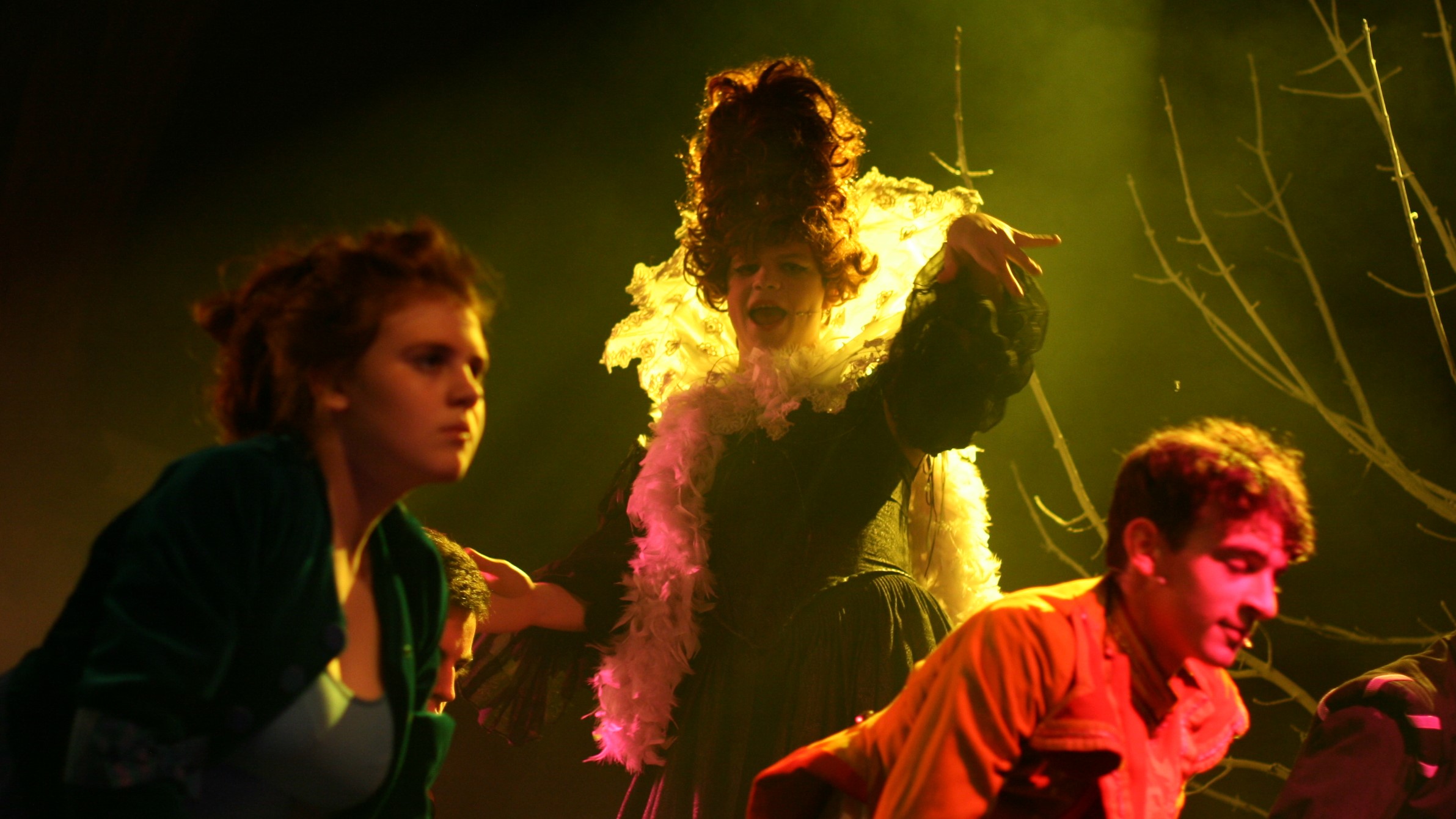
2016: Doctor Faustus
A 500-year-old play for 500 years of education, performed in a world of magic, music, and damnation.
To mark Bolton School’s 500th anniversary, it seemed only fitting to stage a play as old as the institution itself. Doctor Faustus, Christopher Marlowe’s tale of ambition, knowledge, and eternal damnation, was reimagined in a thrillingly immersive production that blended Renaissance drama with cutting-edge music technology.
Performed in the round, the production’s staging was as bold as its concept. At the centre of the performance space stood a raised circular stage, inscribed with magical sigils: a conjuring ground for Faustus’ descent into forbidden knowledge. A trapdoor at its heart provided an eerie gateway for demons to emerge, while an imposing hellmouth, opened out of the raised banks of audience seating. This intimate and immersive staging placed the audience within Faustus’ world of temptation and terror, surrounding them with the rituals and repercussions of his fateful pact.
Returning as musical director, Liam Maloney led a remarkable collaboration that pushed the boundaries of theatrical sound. Pupils travelled to York University’s Jack Lyons Symphony Hall, where they played and recorded music that was then fed into a unique programme designed to recreate the elusive music of the spheres: the ancient concept that celestial bodies produce a harmonic resonance as they move through space. By inputting specific historical dates, the production’s soundscapes could reflect the cosmic music of pivotal moments in history. For instance, at key moments in the play, the audience heard the sound of the spheres as they would have been at the moment Galileo discovered Neptune: a haunting, ethereal underscore that blurred the lines between the Renaissance’s scientific curiosity and Faustus’ fatal thirst for knowledge.
This fusion of historical theatre, immersive staging, and experimental music technology made Doctor Faustus a standout in the school’s decade of theatre. It was both an homage to the school’s long tradition of education and an exploration of the dangers of unbridled intellectual ambition.
Listen to the 'Doctor Faustus' soundtrack
News Archive: 'Doctor Faustus'
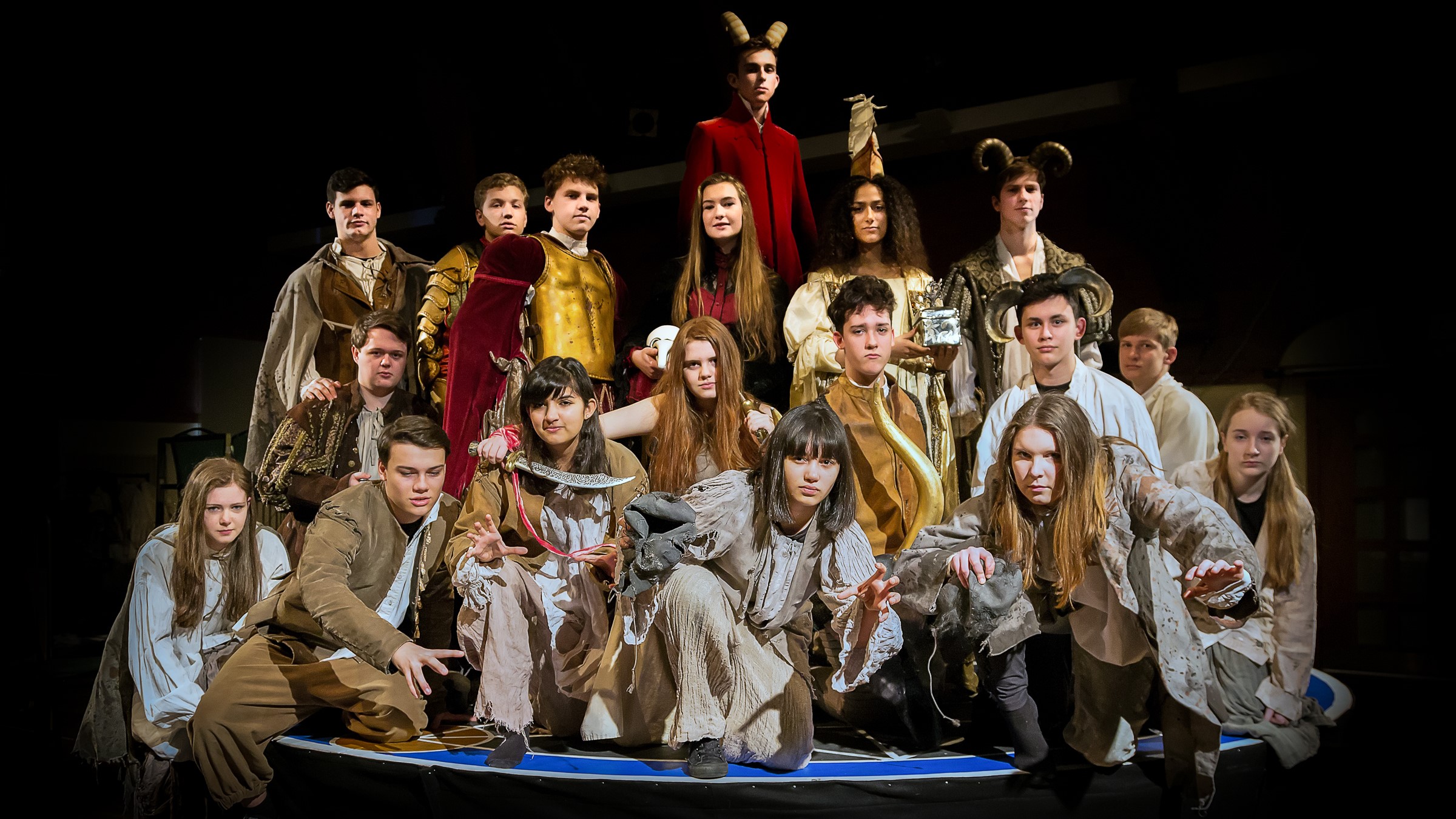
2015 & 2017: Expanding the Stage – Whole School Productions for Younger Pupils
The years 2015 and 2017 marked a significant shift in Bolton School’s theatre programme, as large-scale productions, once primarily the domain of senior students, were extended to younger pupils in Years 7 to 9. These productions not only offered high-quality performance opportunities but also placed younger students at the heart of ambitious and immersive theatrical experiences.
This period also saw a move away from the tradition of alternating productions between the Girls’ and Boys’ Divisions. Instead, the school developed a broader repertoire of multiple productions each year, offering a range of theatrical experiences for both younger and older students. While the Girls’ Division staged The Sound of Music (directed by Becky Toland) and Miss Saigon (directed by Andrea Price), these new whole-school productions provided a different kind of challenge: collaborative, immersive, and inventive, with a strong focus on interdisciplinary artistic input.
2015: Rats’ Tales
In 2015, pupils in Years 7 to 9 took to the stage with Rats’ Tales, Carol Ann Duffy’s reimagining of classic fairytales. Performed in the McKellen Studio Theatre, the production embraced theatre in the round, surrounding the audience with the dark and magical world of modernised folk stories.
Backing this central performance space, 360-degree film screens played animations created by the pupils, supported by Head of Art, Jen Brewer. These moving visuals provided a constantly shifting, immersive backdrop to the tales, deepening the storytelling with striking, pupil-led visual interpretations of the source material.
Above the stage, the full height of the theatre space was transformed with a collection of suspended paraphernalia, each piece a reference to well-loved fairytales: giant keys, enchanted shoes, clockwork mechanisms, and shadowy forests loomed over the performers, creating a heightened sense of magic. This production was not simply about younger pupils stepping into the world of school theatre; it was about them shaping it, adding their creative voices through animation, design, and physical storytelling.
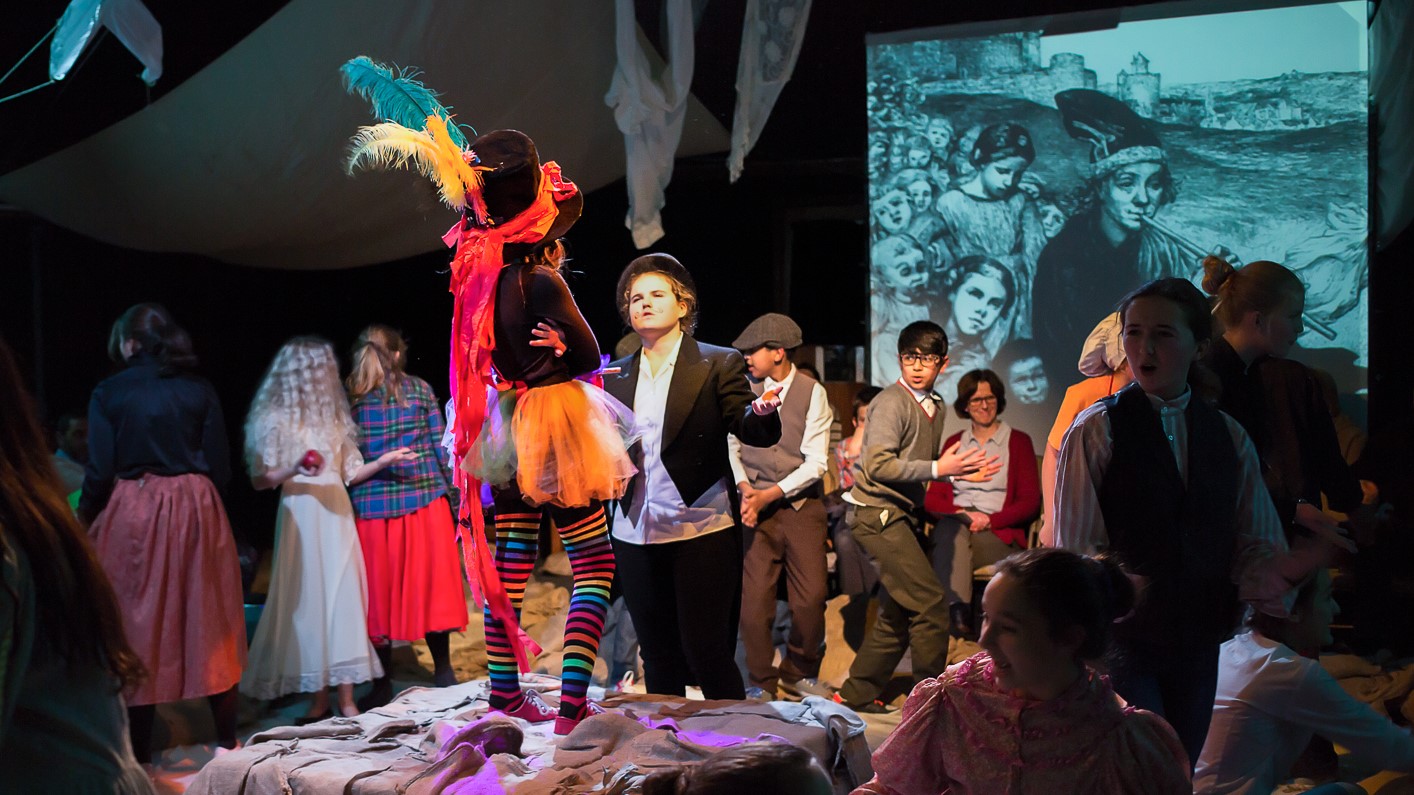
2017: Wonder
By 2017, the same age group took on an even more ambitious project: a promenade adaptation of R.J. Palacio’s novel Wonder, a story exploring kindness, belonging, and the experience of a boy with significant facial differences who enters mainstream school for the first time.
The production process itself reflected the themes of the novel. Pupils worked through a research and design phase, collaboratively selecting and adapting key scenes for theatre. They developed an original script, deciding how best to convey the emotional and social dynamics of Palacio’s novel in a way that was true to its message.
The performance took audiences on a journey through the school building, with key spaces reimagined as locations from the novel. The Boys’ Division Great Hall naturally became the school's assembly hall in the story, a space where protagonist Auggie Pullman first confronts the overwhelming experience of being introduced to a new school. At the rear of the hall, an interactive classroom setting allowed audience members to observe the shifting social dynamics between the young people in the story.
From here, groups of audience members were separated and guided into different classrooms, where intimate scenes played out between pupils, exposing the friendships, tensions, and prejudices at play. The dining hall was lit and reset as a lunchroom, a space in which the realities of school life, belonging, exclusion, and the challenge of fitting in, were played out.
The final leg of the journey brought the audience into the McKellen Studio Theatre, transformed into a summer camp. The space was filled with pop-up tents, lit from within, while a central shed served as the camp office. Around a campfire, pupils played ukuleles and sang campfire songs, drawing the audience into the warmth and camaraderie of one of the novel’s most pivotal moments.
This promenade production was a major step forward for younger pupils’ involvement in theatrical storytelling, challenging them not only to act but to adapt, direct, and design a production that moved playfully through the school environment.
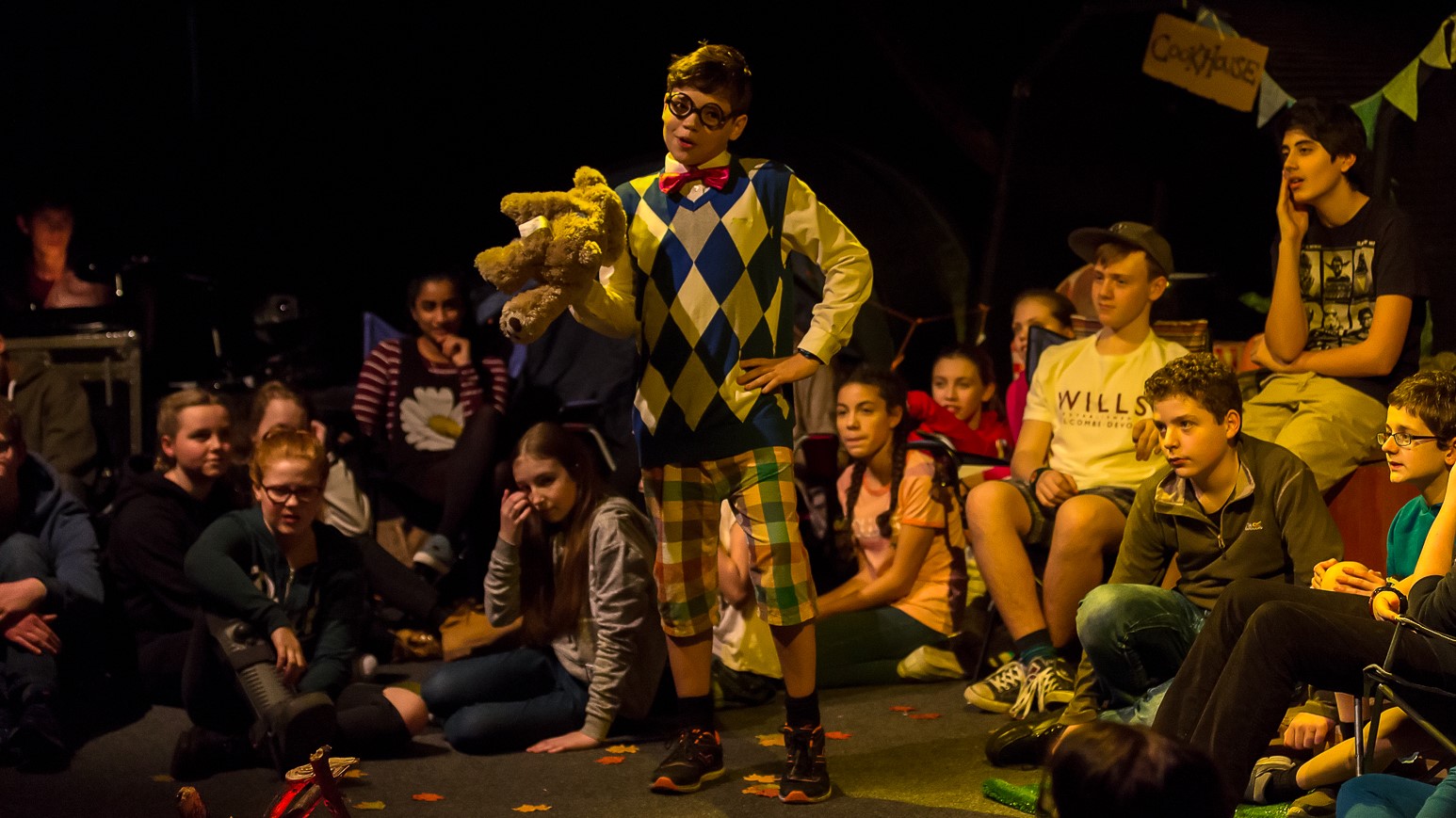
A New Model for School Theatre
Through Rats’ Tales and Wonder, Bolton School demonstrated a commitment to creating theatre that was not just for younger pupils, but shaped by them. These productions cemented a new model where pupils were not only performers but also collaborators in the creative process, whether through script development, animation, or immersive design.
2018: The Tempest
A storm of invention: world-building, music, and the educative power of school theatre.
In 2018, Bolton School’s senior joint production of The Tempest set a new benchmark for immersive theatre-making, transporting audiences to Shakespeare’s enchanted isle through an ambitious fusion of set design, music, and movement. This was a production that demanded much of its young cast, not just in performance, but in navigating a physically and theatrically challenging environment.
The set was key to creating the world of the play. Performed in traverse, the staging placed the audience within the elements of the shipwrecked story. A vast sandpit stretched the length of the performance space, giving the young performers an immediate physical challenge. This was not a polished, flat stage, but an unstable, shifting island landscape, requiring them to move with the uneven textures of the world they were inhabiting.
At one end, a multi-level scaffold structure introduced an end-on staging element, with platforms leading up to a high gantry. From this elevated position, Prospero could survey his domain, manipulating the fates of those shipwrecked below. Opposite this, at the far end of the traverse, Caliban’s cave was constructed from salvaged coach tyres, the tyres were stretched with plastic to transform them into resonant taiko drums.
Music played a vital role in conjuring the magic of the island, with the rhythms of Caliban’s world underscored by live percussion, played by Caliban and members of the subplot, along with other portable instruments woven throughout the piece. Led by Liam Maloney, Hannah Sherry, and Elisa Fielding, the production’s music and movement work heightened the play’s supernatural energy, ensuring that the isle’s ‘sounds and sweet airs’ and discord were ever-present.
Beyond the spectacle, The Tempest served as an example of school theatre as a dynamic study text. For many of the lead performers, Shakespeare’s play was an A-Level set text, and this production became an extended act of applied study. By living and breathing the characters' journeys, these students engaged with the text in a way that reached far beyond the classroom.
Perhaps most notably, the student playing Prospero had never set foot on stage before joining the cast. Alongside experienced performers who had been part of multiple school productions, he took on one of Shakespeare’s most commanding roles, demonstrating that school theatre is not just about entertainment or maintaining an expected standard, but about stretching, challenging, and guiding young people through an act of collective learning.
This production was theatre as community creative health: a process in which students, staff, and creative practitioners worked together not just to stage a show, but to engage in an open, public act of discovery. Whether seasoned performers or first-time actors, every student involved in The Tempest was part of a shared exploration of theatrical storytelling, and of their own creative potential.
Listen to 'The Tempest' soundtrack
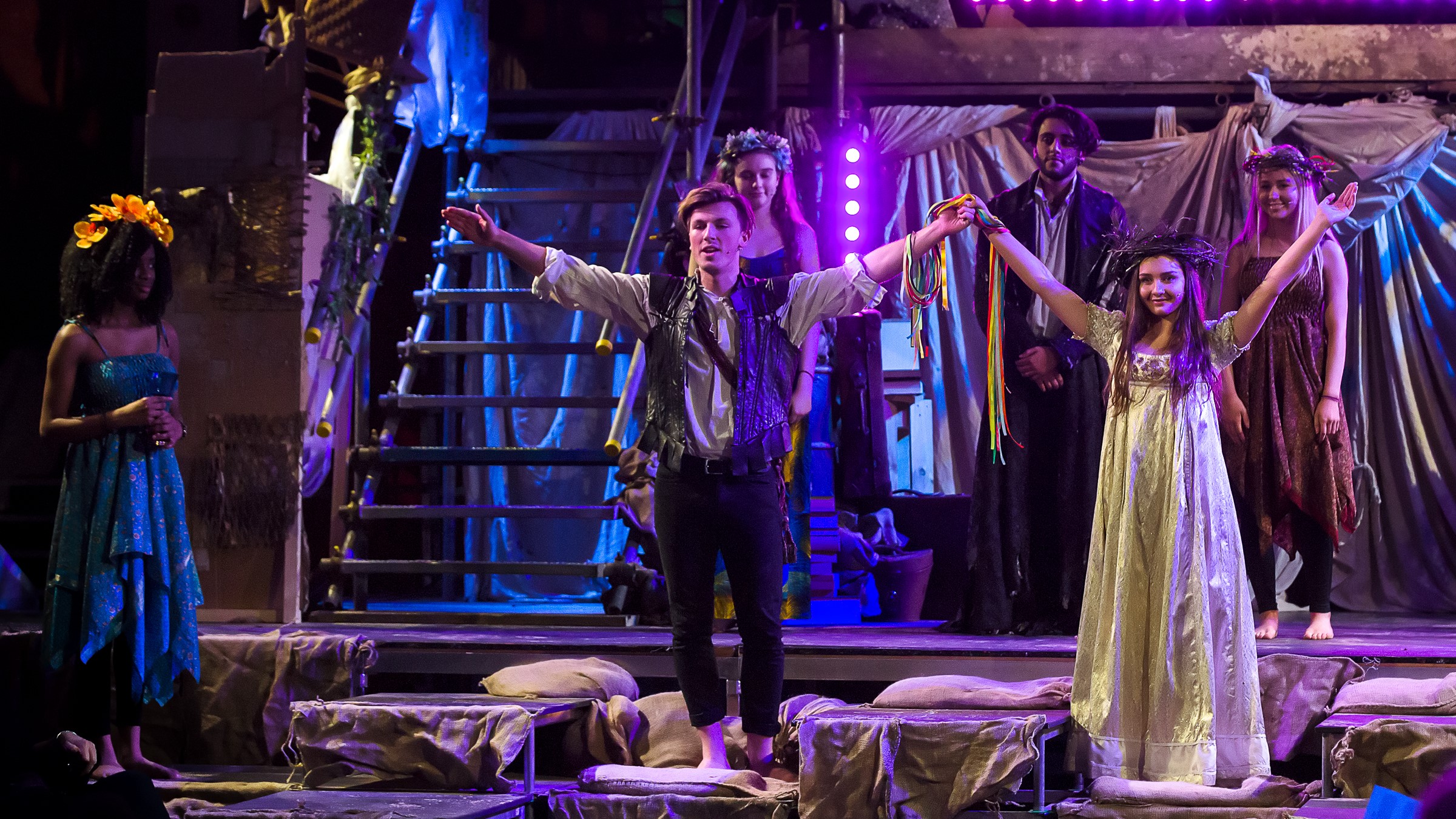
2019: A Year of Local Partnerships
Deepening professional practice through collaboration with the Octagon Theatre.
2019 was a pivotal year for Bolton School’s theatre programme, marking a significant shift towards local partnerships to embed professional practice into school productions. Collaborating with Bolton’s Octagon Theatre, pupils worked with industry professionals in a way that extended beyond performance, providing an authentic learning experience aligned with the school’s Artsmark development. This approach not only elevated the creative process but also underscored the school’s commitment to offering students a tangible sense of career pathways in the arts.
This year saw both younger and senior pupils take on classic literary adaptations—with Great Expectations, staged in the Girls’ Division theatre, and A Christmas Carol, an immersive production in the Boys’ Division Great Hall.
Great Expectations – A Classic Staged Traditionally
For pupils in Years 7 to 9, Great Expectations offered the opportunity to engage with one of Dickens’ most enduring stories. Staged in the traditional theatre space of the Girls’ Division, the production embraced a formally structured staging that gave younger performers experience in working with classic repertoire within a conventional theatre setting.
The production process was professionally guided and supported by Girls’ Division staff, helping students explore character development, text work, and period-specific staging techniques. The opportunity to work with theatre practitioners from the Octagon Theatre provided a real-world insight into professional rehearsal processes, fostering an understanding of how classic texts are adapted for the stage in contemporary theatre-making.
News Archive: 'Great Expectations'
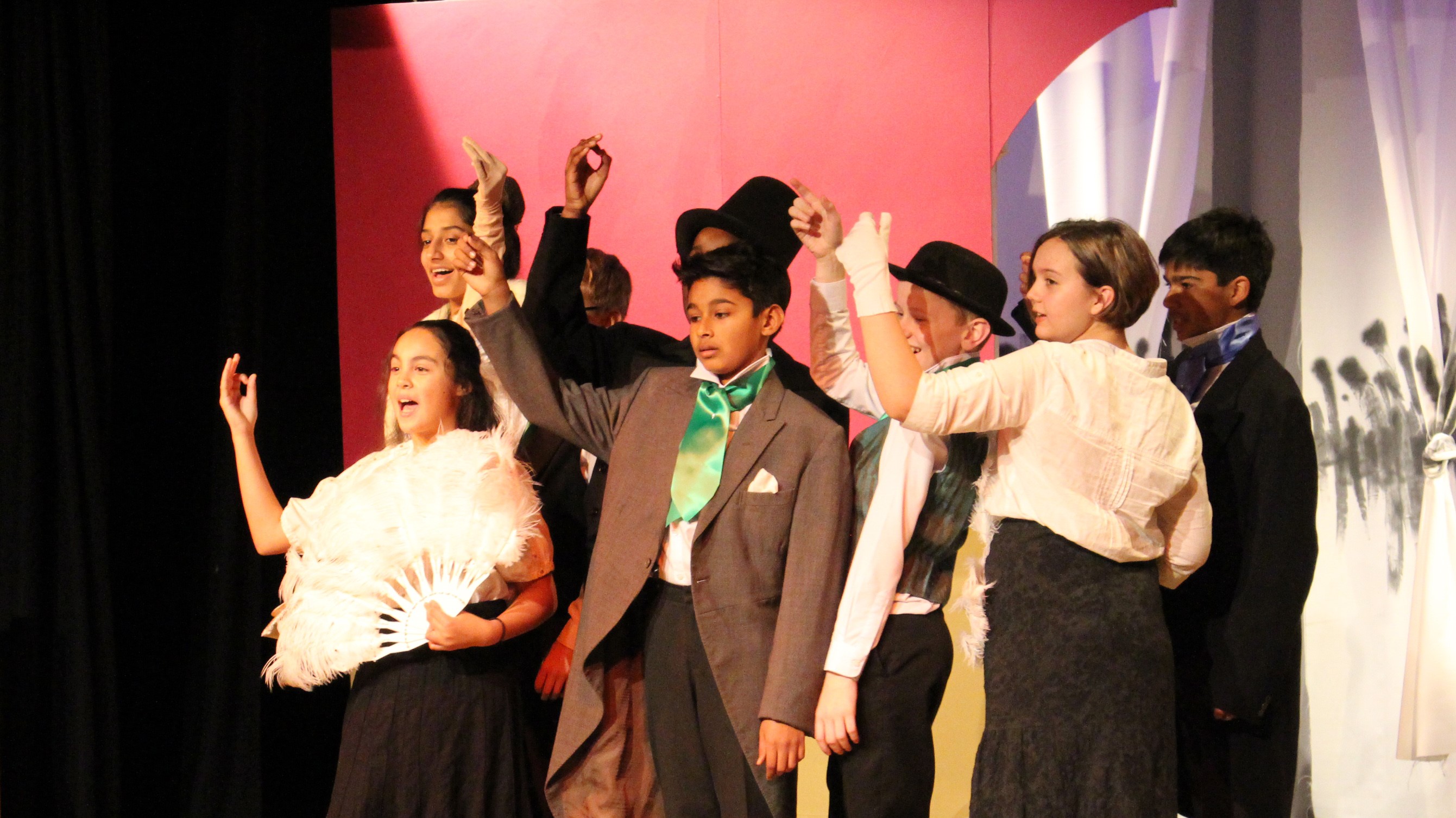
A Christmas Carol – An Immersive Winter Experience
Complementing this, the senior Boys’ Division production of A Christmas Carol was an immersive experience, transforming the Great Hall into Dickens’ Victorian world. The production wrapped the audience in festoon lighting and snowfall, creating an atmospheric, participatory experience that blurred the boundary between performer and spectator.
The impact of partnering with the Octagon Theatre went beyond these individual productions. It established a model for professional collaboration, embedding career-focused learning into the theatre programme. Aligned with the School’s Artsmark development, by working alongside directors and theatre professionals, students have continued opportunities to gain a clearer sense of what a career in the performing arts might look like, whether in acting, directing, technical theatre, or design.
News Archive: 'A Christmas Carol'
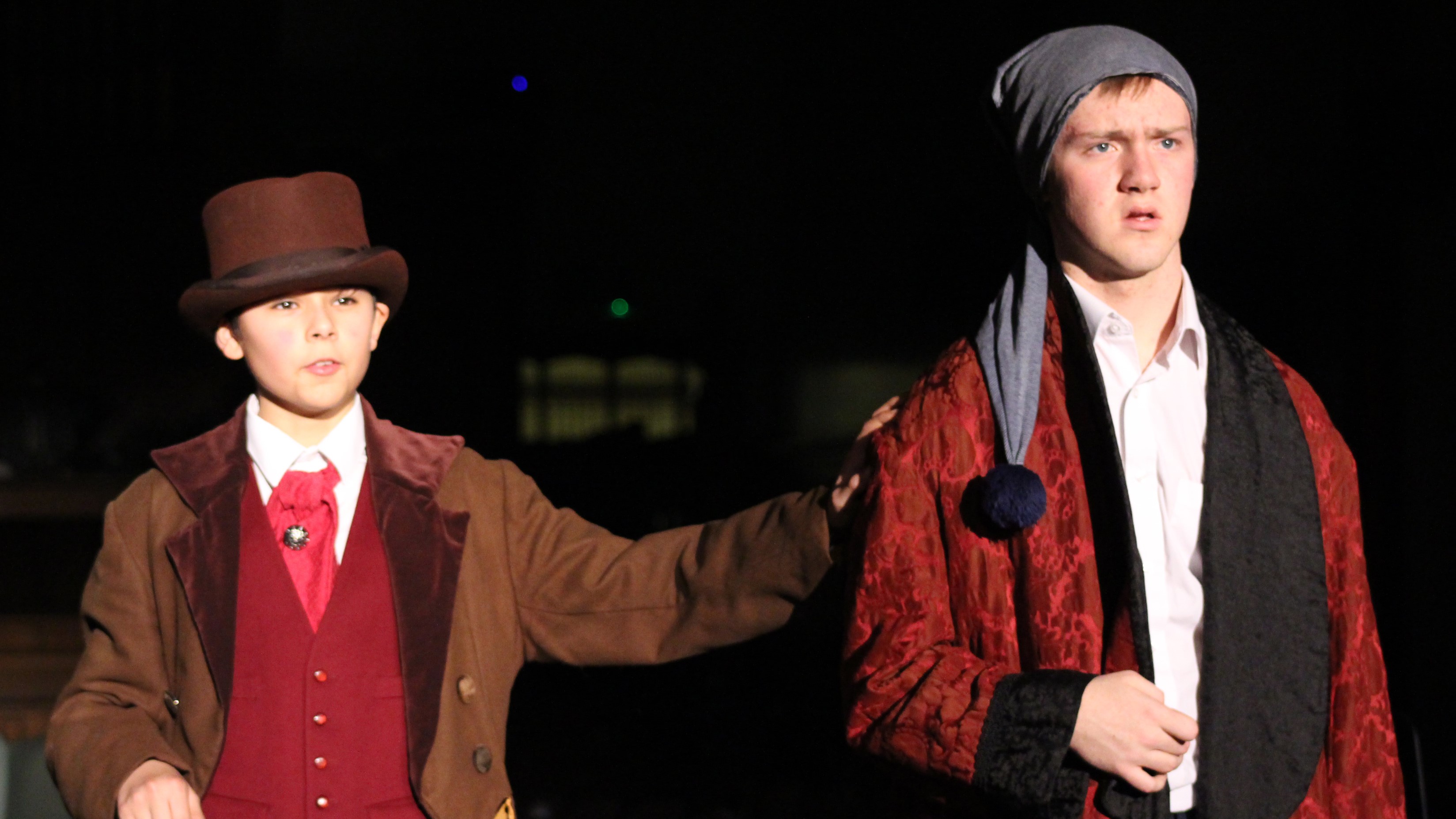
2019: A Theatrical Tribute for Sir Ian McKellen’s 80th Birthday
In a remarkable moment for Bolton School’s theatre programme, pupils from Year 8 through to alumni actors were invited to perform at a surprise 80th birthday celebration for Sir Ian McKellen, hosted in the School’s Arts Centre at the request of his friend, director Sean Mathias.
The cast presented a bespoke piece of theatre, weaving together selected lines from plays McKellen performed in while at school with Shakespeare’s ‘The Seven Ages of Man’. The cast performed dispersed throughout the cabaret set-up, table-side, a remarkable feat for young performers.
One unforgettable highlight came at the moment in Jaques’ monologue where service is mentioned. The Year 8 narrators, with supporting compere Ralf Little, noted McKellen’s service as an activist for LGBTQ+ rights and dramatically opened their overshirts to reveal ‘I Am Gandalf & Magneto – Get Over It’ t-shirts. The reveal was met with a standing ovation, particularly poignant – it turned out – as the event took place the day before McKellen’s birthday, which we later learned was the 30th anniversary of the founding of Stonewall in the actor’s living room.
The evening brought together some of the most distinguished names in theatre and film, with guests including Judi Dench, Derek Jacobi, and Timothy West. Patrick Stewart and Maggie Smith brought well wishes to the room by video link. For the pupils involved, this was an unforgettable opportunity to perform in front of theatre royalty, celebrating the legacy of one of Bolton School’s most illustrious alumni in an event that was as full of heart as it was of history.
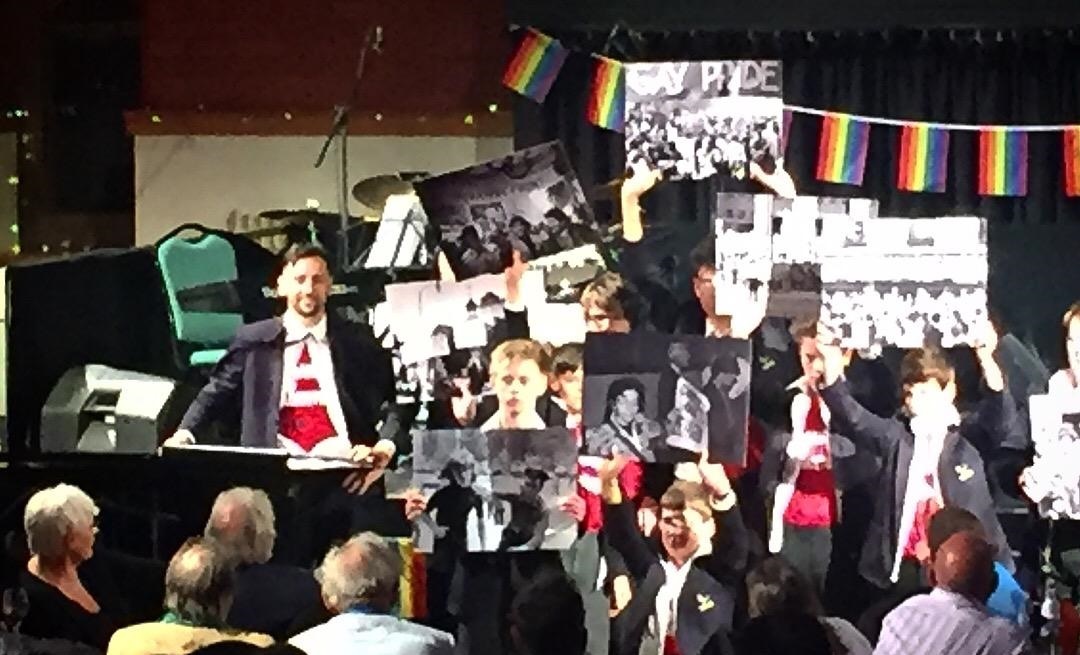
2020-2021: Theatre in a Time of Distance
Acts of ingenuity to ensure the show goes on.
The pandemic years posed an unprecedented challenge to school theatre. Social distancing, year group bubbles, and restrictions on audience gatherings forced a complete rethink of how performances could happen. The question was clear: how might we provide a school show when social distancing meant we could not permit audiences into the Great Hall? The answer, theatre for film: a radical reinvention of the school production, blending theatre and screen performance in ways that allowed us to come together as a creative community without interruption.
2020: It’s a Wonderful Life – A Message for the Moment
When the world felt uncertain, the theatre programme turned to a story that spoke to resilience, kindness, and the value of human connection: It’s a Wonderful Life. The choice felt urgent. This was the message everyone needed to be reminded of at a time when physical togetherness was restricted and communities were navigating collective hardship.
Without the ability to stage a live theatre performance, the Great Hall was transformed into a film studio, hosting five different film sets, each designed to capture different moments of George Bailey’s story. The school partnered with Sitcom Soldiers Studios, led by Old Boys Ben Thornley and Chris Jones, as well as the Octagon Theatre, to bring cinematic expertise to the production.
Filming under pandemic conditions required extraordinary discipline. The cast worked in year group bubbles, navigating the soundscape of daily school life while adhering to strict sanitisation protocols: every object touched needed to be wiped down between takes. The result was a theatrical feature film, which premiered as a live-streamed event to home audiences.
The streamed release was more than just a film; it was an interactive theatrical experience. In the interval, cast members reflected on what makes a wonderful life, accompanied by pupil musical performances, bringing the warmth and community spirit of a live show into people’s homes. Traditional school show trappings were also incorporated, including school raffles, reinforcing the sense that, despite the physical separation, this was still a shared experience.
The production was a testament to creativity under constraint, demonstrating that even in the most challenging conditions, theatre could adapt, evolve, and still create something meaningful.
Watch 'It’s a Wonderful Life' – Bolton School
News Archive: 'It's a Wonderful Life'
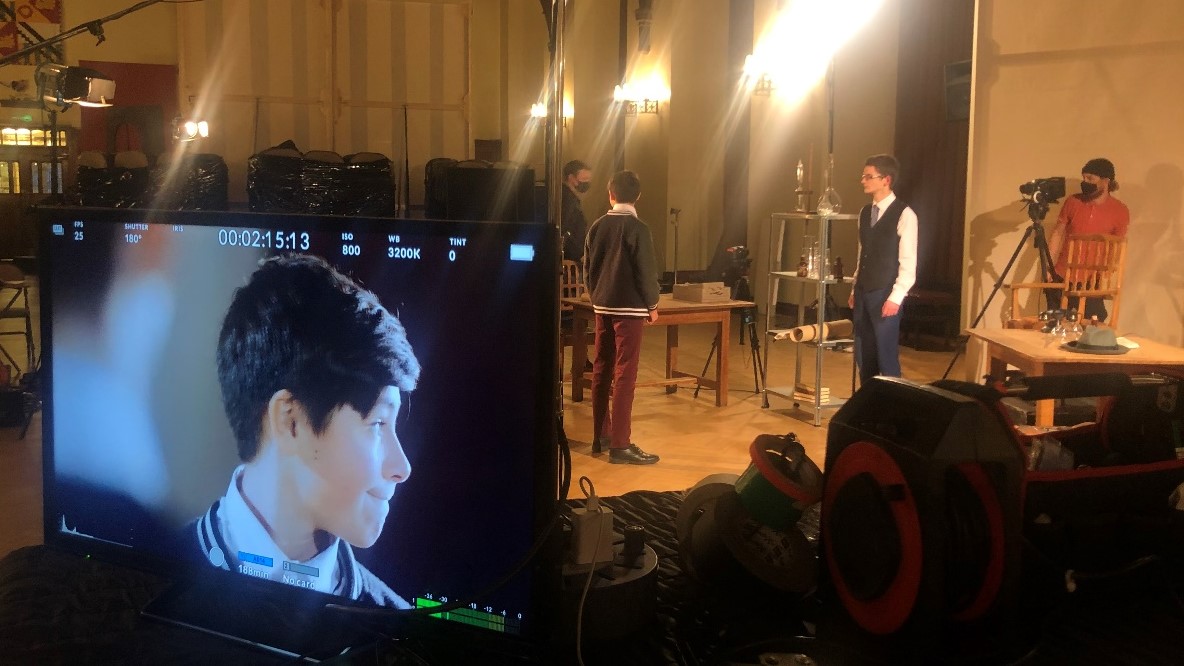
2021: Clockwork – A Play About Connection
A year later, while some restrictions had eased, social distancing measures remained, continuing to shape how theatre could be staged. This time, the School’s response was to hand the storytelling over to the young people themselves, creating a production that actively reflected their frustrations, their questions, and their experience of a world that had become viscerally alive with socio-political concerns.
Clockwork was a bold, fragmented, and questioning piece of theatre, one that embraced the idea of restriction and control as part of its storytelling. What does it mean to be part of a system? How do young people find agency in a world where control feels external, unshakable? What does connection mean when we have spent so long apart? These were the questions that sat at the heart of the production.’
The play combined ideas, themes and fragments from a wide range of sources including A Clockwork Orange, 1984, the work of Kae Tempest and more, into a series of Brechtian ‘units’.
Once again, professional mentorship played a key role in shaping the work. The production welcomed Old Boy Charlie Derrar as a contributing director, bringing an external eye and professional insight into the process.
Rather than resisting the limitations of the moment, Clockwork leaned into them. Social distancing was incorporated into the movement and visual storytelling, making the space between people as significant as the words they spoke. The production became an act of catharsis, allowing the students to channel their emotions, frustrations, and reflections into a piece of theatre that did not seek easy resolution but rather bore witness to the complexities of its time.
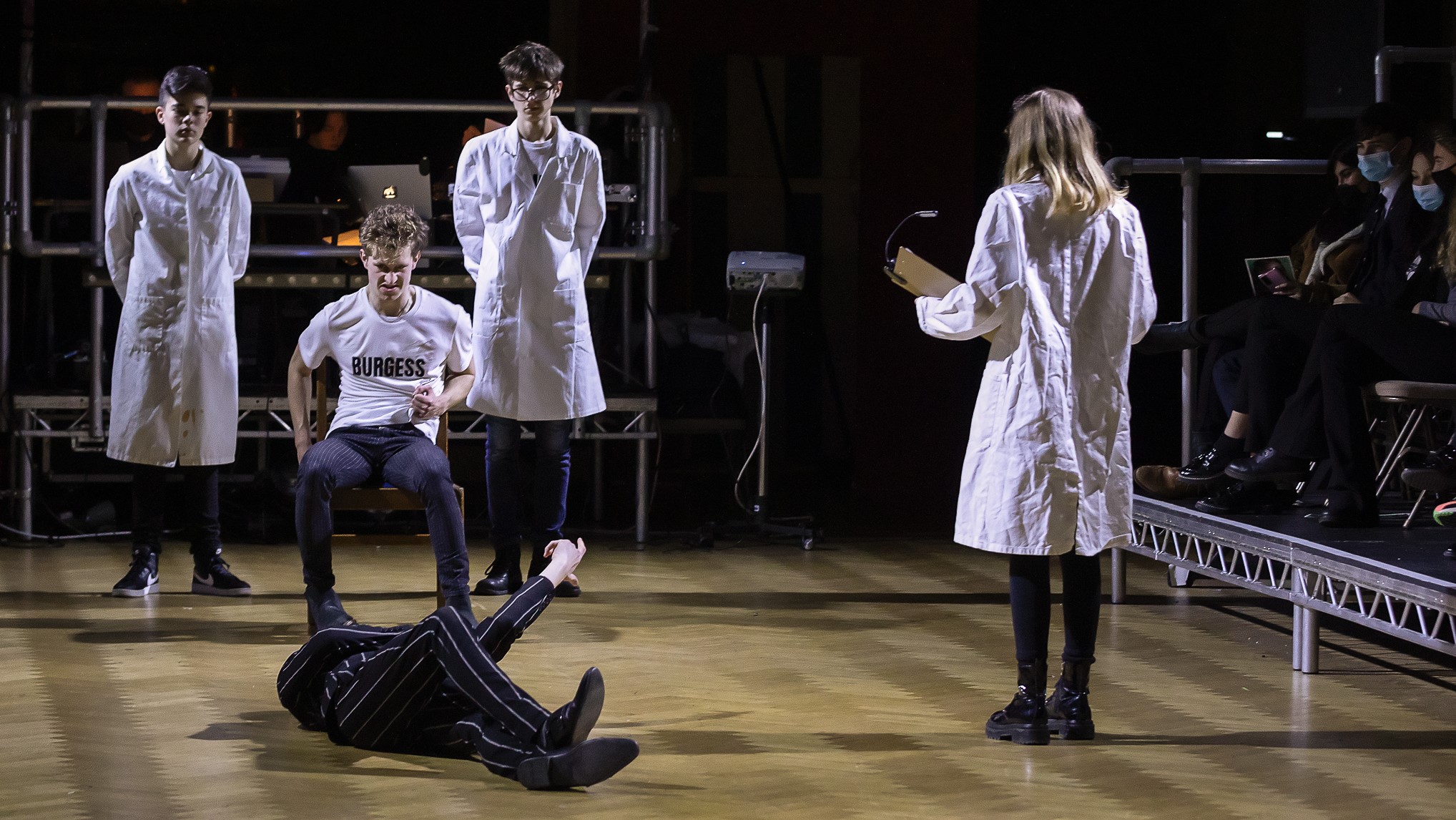
2022-2024: Spectacle, Immersion, and Mentorship
By 2022 and 2023, Bolton School’s theatre programme had fully re-emerged from the constraints of the pandemic, embracing large-scale, immersive productions that challenged both performers and audiences. These years saw a deep commitment to theatrical world-building, with The Great Gatsby offering a decadent, cabaret-style experience and Around the World in 80 Days transforming the theatre space into a whirlwind journey across continents.
Both productions also reflected the evolving ethos of the school’s theatre programme: in Gatsby, this meant a carefully curated script, historical adaptations, and a live band to immerse the audience in the world of the Jazz Age. In 80 Days, it meant intergenerational theatre-making, as veteran student performers, many with over ten productions to their name, took on leadership roles to support younger pupils in their first major show.
2022: The Great Gatsby – A Theatrical Party of the Jazz Age
The Great Gatsby was conceived not just as a play, but as an experience: an invitation for the audience to step into the glamour, chaos, and moral reckoning of the 1920s. The production was staged cabaret-style, with audience members invited to dress for the occasion, further blurring the line between spectator and participant.
Rather than relying on an existing adaptation, the school theatre team abridged and restructured the novel in-house, integrating additional historical context to create a script that allowed a broad number of boys and girls to participate in the production. This approach gave a greater sense of scale, ensuring that the world of Gatsby’s parties felt as lively, extravagant, and populated as Fitzgerald intended.
Music was a defining feature of the production. Hannah Sherry led a live Gatsby band, capturing the essence of the Jazz Age with a bespoke, high-energy soundtrack that underscored the decadence and shifting moods of the play. The play also benefitted from guest-guidance from a dancer and Old Girl theatre-maker, Collette Murray. The immersive atmosphere, combined with a visually dynamic set and period-authentic choreography, ensured that the production was not just a faithful adaptation but a vivid theatrical reimagining of Fitzgerald’s novel.
For those involved, Gatsby was more than just another school production, it was a deep dive into literature as living, breathing drama, offering an embodied understanding of the novel that no classroom discussion could replicate.
Read more about 'The Great Gatsby'
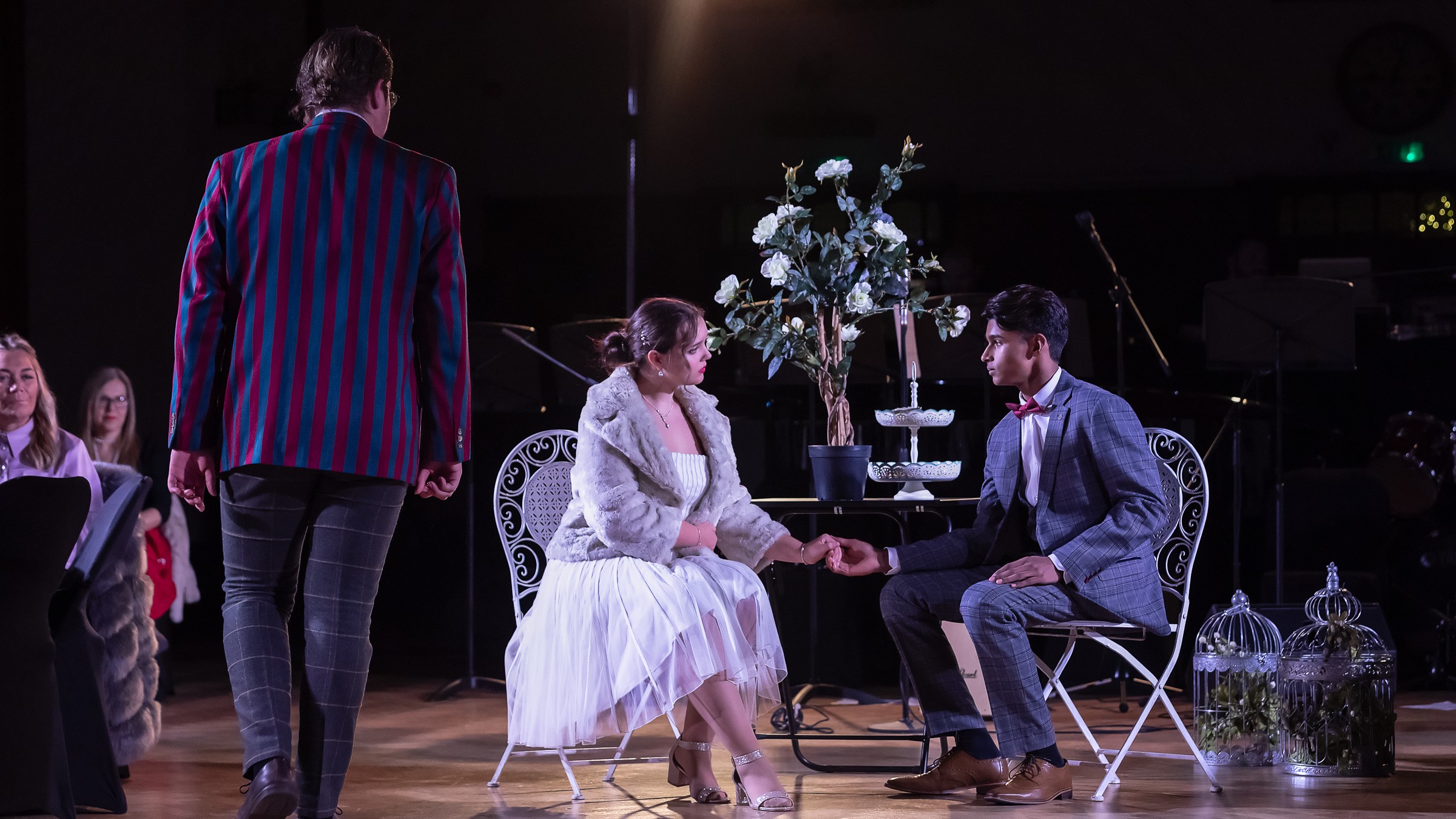
2023: Around the World in 80 Days – Aspiration, Challenge, and Adventure
If Gatsby was about capturing the intensity of a single era, Around the World in 80 Days was about motion, momentum, and the thrill of the unknown. This was a hugely ambitious, in-the-round production, transporting the audience across continents, through bustling cities, remote landscapes, and high-stakes adventures.
For the first time, pupils from Years 8 to 13 shared the same stage, creating an in-house system of mentorship. Seasoned school theatre veterans, some with over ten productions to their name, worked alongside younger students making their stage debut. This aspirational model not only raised the standard of performance but also offered the youngest cast members direct guidance and support, ensuring that they were learning in real-time from those who had come before them.
The production itself was full of technical and physical challenges. With the action spanning multiple countries and forms of transport, the staging had to be both fluid and evocative, conjuring moving trains, sailing ships, and vast landscapes in an economical yet visually striking manner. Staging in the round heightened the immersive experience, with the audience surrounded by the whirlwind of travel and adventure.
A significant narrative addition was the introduction of Nellie Bly and a team of female journalists, allowing for a large female cast and highlighting a real-life response to the travel wager. Bly, a pioneering journalist, famously undertook her own journey around the world in record time, making her inclusion not only historically relevant but also a means of expanding the gender representation in the story.
Read more about 'Around the World in 80 Days'
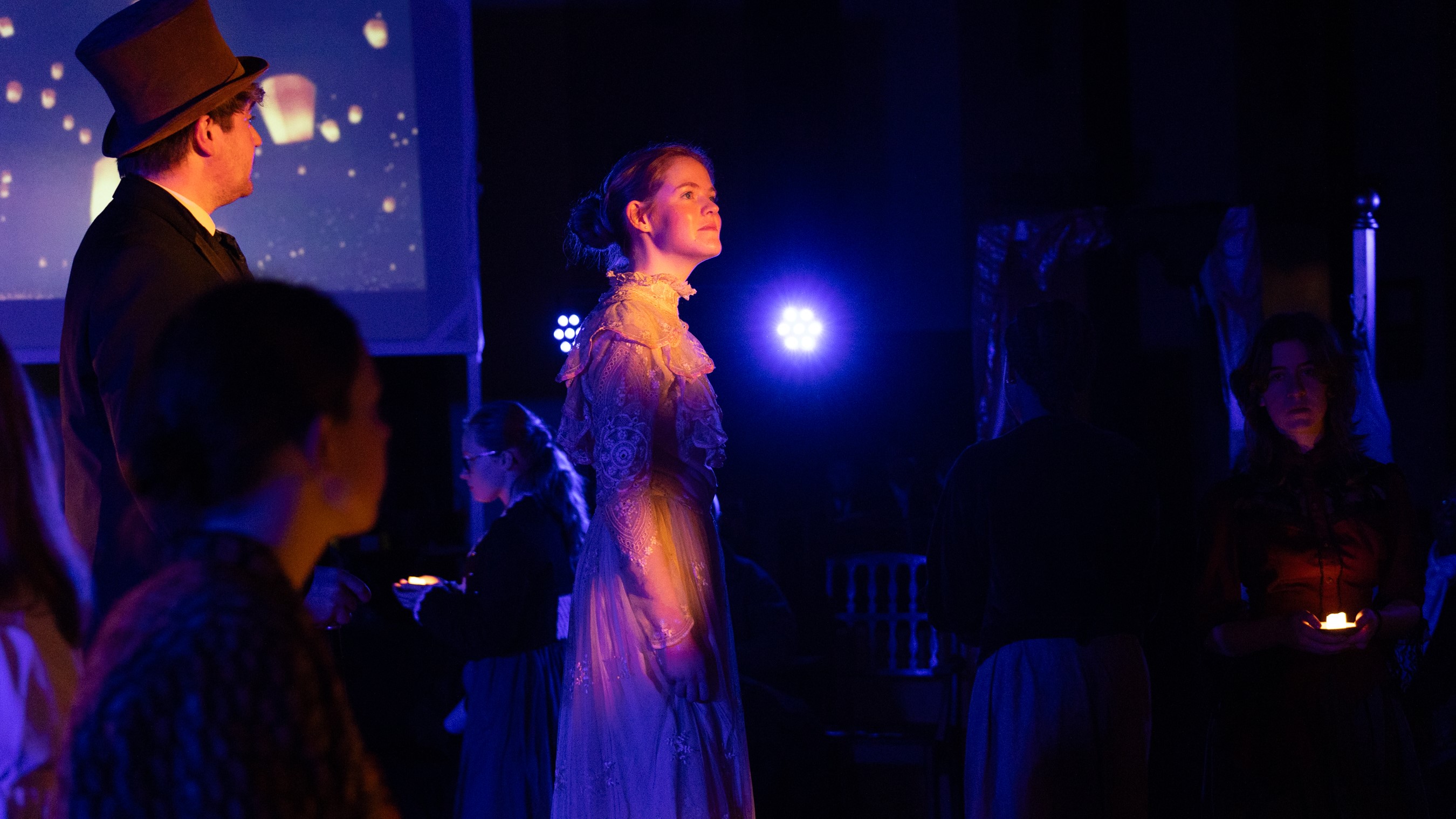
Expanding Theatre Beyond Productions: The Summer Theatre Festival and Foundation Growth
From 2022, the introduction of a Summer Theatre Festival has created new opportunities for both audience engagement and active participation, extending Bolton School’s theatrical reach beyond its own pupils to visiting local primary and secondary schools. Highlights of this evolving programme include a recommissioning of the theatrical adaptation of Robert Macfarlane’s The Lost Words, a Shakespeare Festival in partnership with Rose Bruford (North) where theatre-makers from primary to undergraduate level collaborated and performed alongside one another, and most recently, puppetry-driven theatre from award-winning companies and climate-focused theatre from Andy Smith’s Plays for the People series.
Alongside this, wider Foundation theatre growth, led by Mr Lovatt and Miss Talbot, has introduced both Junior musicals alongside the Senior staple, a theatre festival directed entirely by pupils, and a writing for theatre programme linked to the School’s commissioning of a new script from Ben Cain as part of the national Write the Girl programme. Ben also leads Saturday Social community theatre sessions on behalf of the school, hosted by community arts hub, Creatives Now, further strengthening the School’s commitment to making theatre an inclusive, creative force for both its students and the wider community.
The Transformative Power of School Theatre: Vision, Ambition, and the Future
Looking back on this decade of invention in Bolton School’s theatre, one thing becomes clear: when vision and ambition are injected into school theatre, the personal, social, emotional, and professional potential it offers young people can be extraordinary. This programme has been a crucible for creative risk-taking, not only developing confident performers but also future theatre-makers, designers, musicians, technicians, and storytellers. It has created a space where pupils can discover their voices, take ownership of their creative expression, and work alongside professionals in an environment that models the reality of the industry.
At its heart, school theatre at Bolton has been more than just a series of performances; it has been an act of community, creative health, and social learning. It has given young people the resilience to tackle complex roles, the empathy to step into different perspectives, the discipline to commit to a rigorous process, and the confidence to perform and lead. The introduction of mentorship, partnerships, and intergenerational collaboration has further embedded a culture of support and aspiration, ensuring that the next wave of students step onto the stage with the same spirit of invention that has defined the past ten years.
As the programme continues to evolve, with new writing commissions, festivals, and interdisciplinary collaborations, it stands as proof that school theatre, when given the space to be bold, ambitious, and inclusive, can prepare young people for far more than a career in the arts. It prepares them whole-heartedly for life.
A Final Note: The Privilege of Connection
Borrowing from Kae Tempest: Art is connection. True connection is not something that can be manufactured. It is something that emerges between us when we are open to it. When we are fully engaged, fully present, and the connection is alive, we experience a sense of wholeness. I cannot think of any better reasons to share as a mandate for why we must invest in cultural education – it is learning the ropes of how we live together, ethically, with appropriate effort, in kindness and joy.
Digging through photos, retracing the steps of a decade’s worth of theatre, I’m struck by how much detail comes rushing back: the faces, the scenarios, the sheer effort, and the journey of every single person who has stepped into these productions. Not that the people or the moments are ever far from mind. Not all of it is accounted for here, but every show, every rehearsal, every moment of invention holds a wealth of shared lessons, personal change, and the discovery of new capacities for challenge.
Above all, what lingers most is the privilege of connection: of coming together to make something, to be honest about who we are to tell a story as best we can, to push boundaries, to laugh, to struggle, to support one another, and to create something that exists, for a moment, before it is gone. That is what makes school theatre so very, very special.
Look back on a decade of theatre:



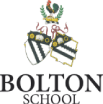












.jpg&command_2=resize&height_2=85)







